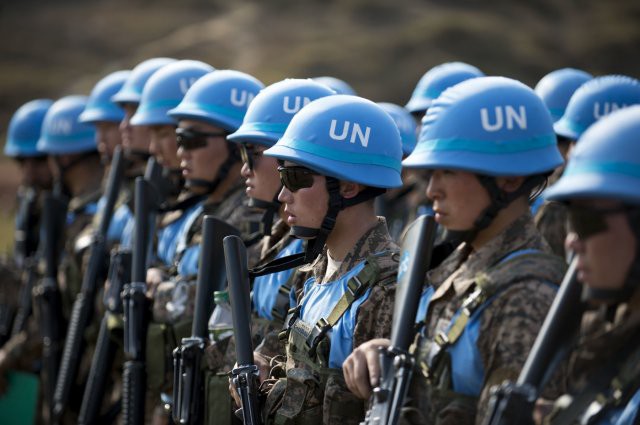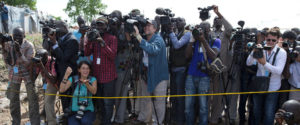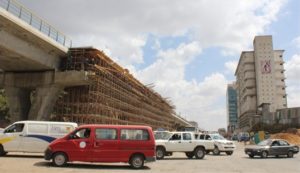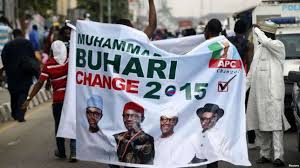By Christabel Unobe
Human security is a strategic choice of all modern societies. Perhaps, this explains the rationale behind the intervention of the international community when civilians and noncombatant lives are at stake. The massacres of over one million Rwandans in 1994, within three months and the failure of the international community to intervene on time gave rise to the concept of responsibility to protect (R2P). This means that, in cases involving crimes against humanity and genocide, the international community has the responsibility to intervene.[1]In practice, however, there is considerable disquiet about when intervention is desirable or the conditions under which force and other instruments of intervention should be used. Though one can argue that actions have been taken by the international community to save vulnerable lives pre and post Rwanda, there have not been uniformity in interventions. This raises the question, are some lives worth more than other lives? Which lives are worth saving? While Hampson and Raymond (2018) argue that human security should apply to all peoples regardless of their ethnic or national origins, socio-economic status, religious creed, or political persuasion, this has not been the case in practice.
In Rwanda, the International community’s nonchalance led to the death of over one million Tutsis and eight Belgians before any intervention. When the international community intervened, they did so to remove their nationals, not Rwandans. In the words of Alison des Forges, “Rwanda was simply too remote…too poor, too little, and probably too black to be worthwhile.”[2] Intervention in East Timor happened due to peer pressure because of the strategic nature of the Indonesian government in international politics.[3] In the Arab League international intervention was stalled because of the politics but the intervention in Yugoslavia was timely and successful.
One can argue that with the intervention by the international community in rescuing vulnerable lives, some lives are worth more than others. Jones () in her article disagrees that the argument that preference to saving some lives over others over a cost-benefit approach does not hold water in the case of Bosnia and Yugoslavia because these are countries with little to offer Western Europe or any international power. Juxtapose Yugoslavia and Bosnia against other countries where the west has declined or delayed in intervening even when lives were obviously at stake and genocidal acts have been committed, there is a pattern. While Yugoslavia and Bosnia are very poor countries, there are Europeans and white. The issue of race and Rwandans being black was prominent in the discourse of why Belgium and the others who intervened will only rescue their nationals. Rwandans were Africans and blacks. If this was in South Africa, through an African country, it is reasonable to argue that the situation and western approach will have been different.
According to Hampson and Raymond (2018), protecting vulnerable civilians from war crimes and weapons harmful to civilians and non-combatants is a conception of the human security paradigm.[4] Russia, a powerful member of the UN Security Council has consistently used biological or chemical weapons on foreign soil against dissidents with little consequences. China has consistently violated the rights of its vulnerable Uighur populations amidst rumors of ethnic cleansing but with very little consequences. Yet, most cases of war crimes and crimes against humanity prosecuted and indicted by the International Criminal Court (ICC) have been against Africans. The only case indicted for genocide in Sudan’s Omar Al-Bashir. [5] Yet, powerful nations and violators of human rights are left to continue their reign of terror.
The human security field is growing and events have shown that the international community is committed to protecting vulnerable against threats especially when it falls into genocide or crimes against humanity. There is a lack of clear definition of when intervention and which intervention should be pursued because of the principle of sovereignty which empowers states to violate rights to a certain extent.[6] This makes intervention politicized in certain cases. Nigeria has continually suffered genocidal acts from Boko Haram, Christians are massacred and Moslem Fulani herders ravage villages, yet the level of international coverage or exposure is minimal at best. Will this have been the case in England? Or anywhere else in Europe? It raises the questions: which lives matter or are worth saving?
- Christabel Unobe is a Ph.D. Student of Global Affairs at Rutgers University, Newark and a Research Fellow at the Rutgers Center for Emergent Threats in the 21st Century (ET21). Her research interests are broadly around the areas of Human Rights, Mass Atrocities, Religion, Gender, and Transitional Justice.
[1] Hampson, F. O and Raymond, M, “Human Security as A Global Public Good,” 524
[2] Jones, A, (2018) “Genocide and Crimes against Humanity,” Security Studies, Williams, P & McDonald,3rd Ed, Routledge: London, 370
[3] ibid
[4]Hampson, F. O and Raymond, M, “Human Security as A Global Public Good,” 529
[5]Jones, A, (2018) “Genocide and Crimes against Humanity,” Security Studies, Williams, P & McDonald,3rd Ed, Routledge: London, 374
[6] ibid







Good paper you have here!
Keep it up please.